Port Lincoln tuna titan Hagen Stehr fears more lives will be lost at sea without urgent action
Spencer Gulf seafarers have revealed the cardinal rule for life on the water, as industry heavyweight Hagen Stehr reignites calls for urgent action for safer seas.
SA News
Don't miss out on the headlines from SA News. Followed categories will be added to My News.
Port Lincoln tuna titan Hagen Stehr made his fortune on the sea.
His fortunes grew as he pioneered an academy aimed at training people to be safe on the waters.
Even 27 years after he founded, and still chairs, the Australian Maritime and Fisheries Academy, there are still disparities for those who work on the seas and recreational boaties.
As Australia’s second largest tuna fishing operator, Mr Stehr fears that disparity will continue to cost lives unless urgent action is taken.
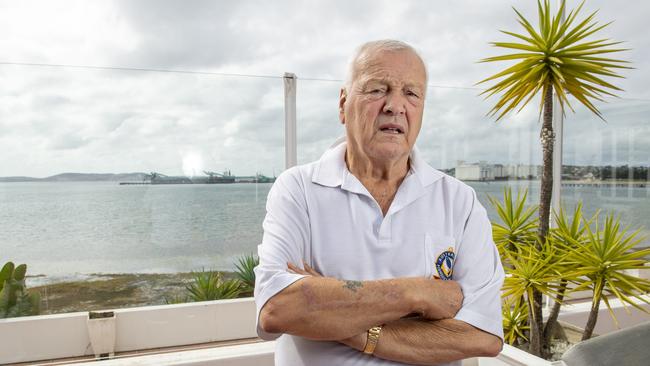
Mr Stehr spoke with The Advertiser just days after three people – Paul Eckert, his son Tom Eckert and “dear” family friend Alan Bottrill – died when their 6m boat capsized near Spilsby Island.
Miraculously, university professor Danny Eckert and his 12-year-old son survived.
The water-facing rooms from Mr Stehr’s home gives him a vantage point to Port Lincoln’s maritime comings and goings – and the astute industry titan misses little.
Mr Stehr said he did not know the details of the latest tragedy. But, speaking generally, he did not hold back in his criticism of the South Australian standards for water safety.
“Experience is not enough,” he says.
“You’ve got to have an understanding, have training for the problems that you might only encounter and which does not happen every day, but might.”
Mr Stehr said the commercial fishing industry was highly regulated with strict safety and permit to operate requirements.
But he fears safety is still not taken seriously enough.
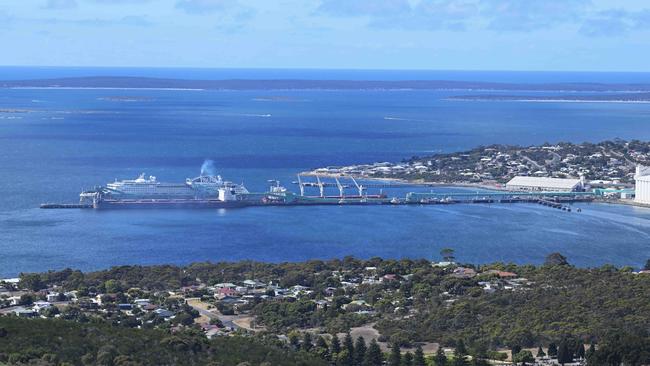
He describes unsafe operators as “cowboys”, and says it’s a “foregone conclusion” more people will die on South Australian seas if safety standards are not raised.
It’s an unpopular opinion and he expects “flack”, from the industry and politically as state leaders enter another election.
“If it doesn’t change, they will lose a dozen (lives),” he says.
“It is a foregone conclusion – it will happen.
“Everyone is scared of more regulations. (The government) is going into an election now, everyone is going to say we don’t need more training and of course it takes a little bit of money, but if you get some base training, you should be able to bring up the standard.
“But it will take time.”
AMFA chief executive Robert Miller is equally passionate on raising safety standards on South Australian seas, and says the requirement for boat operators to make a “risk assessment” with regards to life jackets on board was a “cop out”.
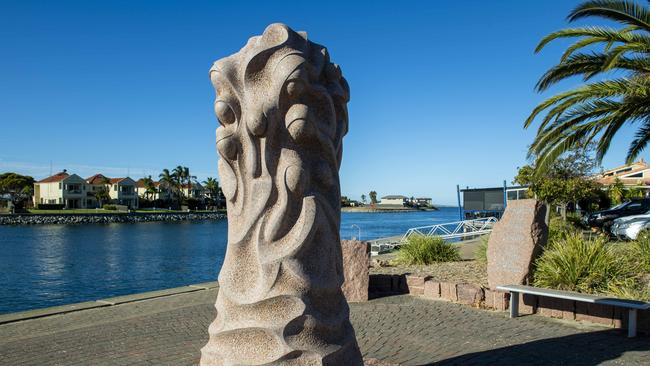
He wants South Australian boaties to undergo practical tests – similar to a driving test – when getting their licence as a first-stop measure to boosting water safety.
And the disparity in repercussions for maritime tragedies between the commercial and recreational sector was vast.
“If someone falls off a (commercial) vessel and dies, industrial manslaughter laws kick in,” Mr Miller says.
“Experience can’t prepare for the rare dangerous events like what happened off Port Lincoln this week.
“But training can take in all sorts of events, and unless you’re trained, it will happen again.”
In Port Lincoln, or any South Australian town where the sea is more than a coastal getaway but a way of life, there’s an unwritten law.
Never turn your back on the sea.
It’s the 11th commandment and one experienced seafarers tell The Advertiser is the single most important rule.
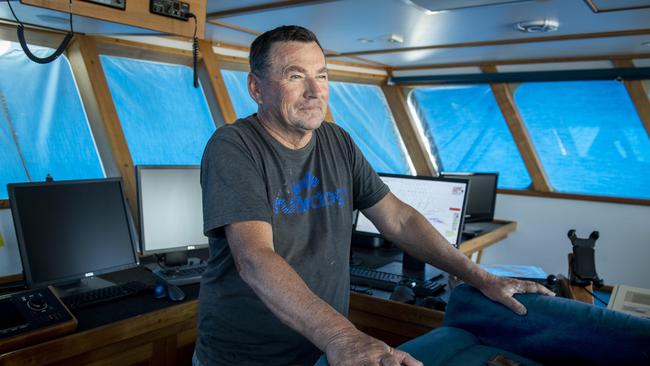
More than 850 shipwrecks line South Australia’s coast.
Matthew Flinders named Cape Catastrophe and the Sir Joseph Banks Group of islands after the crew he lost in an ill-fated mission for freshwater in 1802.
It’s the same waters that surround Buffalo Reef – and Spilsby Island – where Professor Eckert and his 12-year-old son were found alive.
Millennium 3 skipper Paul Watson knows the area well, having fished there recreationally when he’s not trawling for prawns.
He says one of his first bosses more than 40 years ago told him there were three rules on the boat.
“He told me, the first rule is to get every man aboard home safely to their families,” he says.
“Rule two: get every man aboard home safely to their families on the same boat.”
The third? Get every man aboard home safely to their families, on the same boat, possibly with some fish.
It’s rules he still enforces on his crew, with added measures of life jackets fitted with locator beacons and a healthy respect and wariness of the unpredictable and dangerous nature of the deep waters.
“The sea has no feelings,” he says.
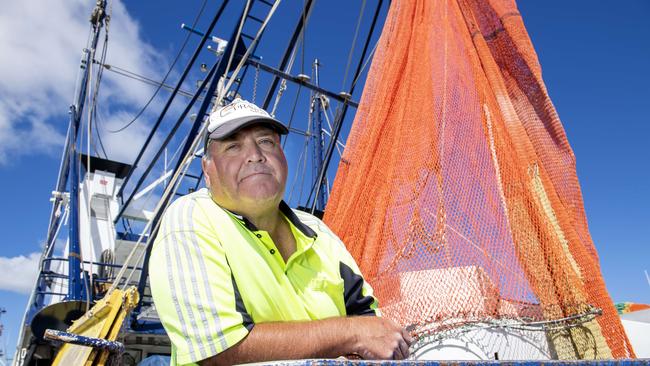
Challenge deckhand Sid Dowd has spent 46 years working the seas and is wary of getting too close to the side of the boat.
“It’s the sea; respect the sea. It is the one thing I was brought up to do,” he says.
“As a kid I sailed the bay and you learned to respect the sea. Growing up on boats and dinghies, don’t ever turn your back on the sea.
“I still worry because you just don’t know.
“I keep myself well and truly away from the sides of the boat.
“People do get complacent, this is why accidents happen. You’ve got to know the boat.”
Skipper Les Polkinghorne has embraced the advances in marine technology, from safety measures to weather maps and apps, and the tools mean “you don’t really get caught out no more”.
“There is days when it’s pretty rough and you sort of watch what you’re doing,” he says.
“In this day and age, there’s lots of weather maps and swell maps. You can predict which way the wind is going to come from.
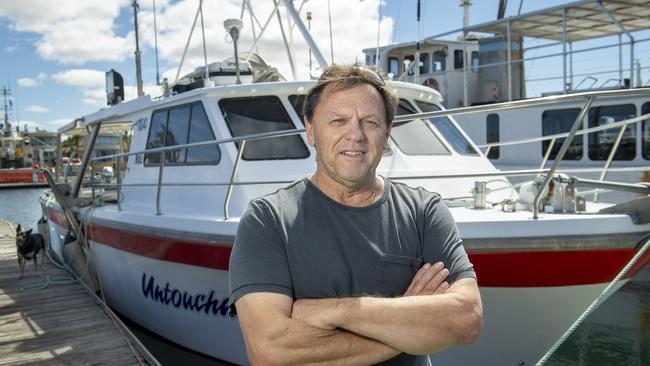
“Back in the early days, we didn’t have that and it was a little bit risky at times, you’d get caught with the weather changes and that sort of stuff.
“The sea? You’ve got to respect it. It can get pretty nasty out there.”
Several operators The Advertiser spoke to said they would “shake your head at” some places recreational fishers would go, knowing they would not venture into some straits. They were speaking generally, and not commenting on the tragedy that claimed the Eckerts.
One thing that earned consensus among the boaties, however, was the unwritten rule of Port Lincoln.
“Never turn your back on the sea.”





